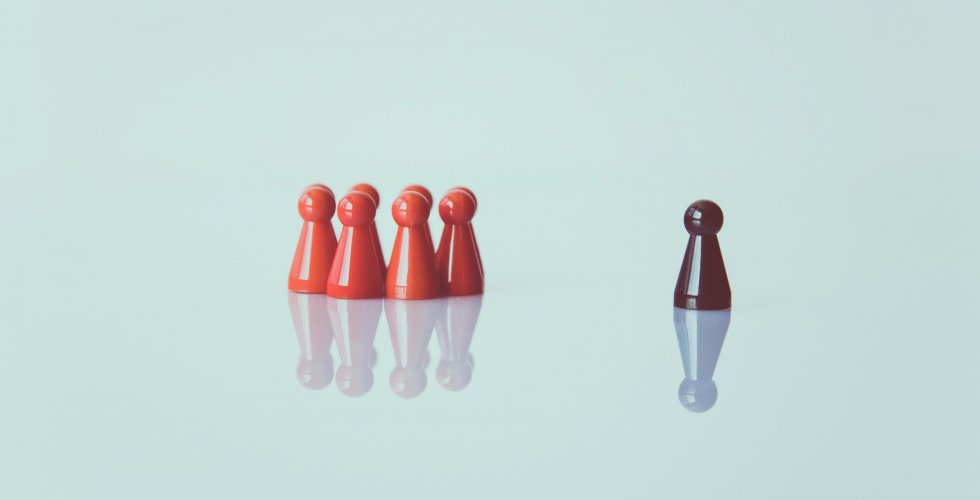How LGBTQI people can be included in the Sustainable Development Goals
Also available in:
English
Svenska
Did you know that LGBTQI students are more likely to drop out of school than other students? Or that LBTQI women and gender-non conforming people are excluded from development initiatives due to gender roles, norms and stereotypes? These are examples of hurdles to the fulfillment of the Sustainable Development Goals.
An important principle of Agenda 2030 is to leave no one behind. Despite this, LGBTQI people are still excluded from sustainable development initiatives and the SDGs. Because of discrimination and structural oppression, LGBTQI people have worse health, less access to education and experience poverty at higher rates. As long as LGBTQI people continue to be excluded from sustainable development, none of the global goals will be achieved.
RFSL has created new policy briefs about the barriers which prevent LGBTQI people from having their human rights fulfilled, based on the SDGs. In our briefs you can find information on how LGBTQI people are excluded from five different goals: health, education, gender equality, decent work and finally peace, justice and strong institutions. In the policy briefs you can also find RFSL’s recommendations for LGBTQI-inclusion and how we can ensure that their human rights are fulfilled. If you are an activist or working in civil society, you will also be able to read our tips for using Agenda 2030 as a tool for including LGBTQI people in sustainable development.
Do you want to find out more about LGBTQI-inclusion in Agenda 2030? Read our report which RFSL created together with the Danish Institute for Human Rights.
More about...
With a history that goes back all the way to…
More
What are the most pressing issues for lesbians globally? What…
More
Through the High Level Political Forum (HLPF), we can follow…
More
RFSL strongly condemns the Serbian police's decision to cancel the…
More
KharkivPride took place September 17-25, 7 months after Russia began…
More
Are you thinking about applying for funding from RFSL? Here…
More
RFSL welcomes new applications from LGBTQI+ activists for individual or…
More
RFSL is welcoming project proposals to work with LGBTQI+ communities,…
More
Intersex people are a group that has long been made…
More
RFSL is deeply concerned by the ongoing invasion of Ukraine.…
More
A wave of anti-LGBTQI movements are working in countries like…
More
As a peer organisation with the possibility to support LGBTQI…
More
Discrimination and violence hinder LGBTQI people's access to work and…
More
On 12–22 August, we celebrate World Pride in Malmö, Sweden,…
More
The right-wing nationalist government in Poland has presented a draft…
More
The celebration of World Pride is currently taking place in…
More
We, the undersigned organisations working to advance the human rights…
More
One of Poland’s largest provinces, Malopolskie located in the south…
More
For the third year in a row, RFSL:s partner Sphera…
More
During the UN Human Rights Council's 48th session, RFSL and…
More
Homophobia, biphobia, and transphobia are widespread in Georgian society and,…
More
For the third time since its inception, RFSL is happy…
More
This week, ILGA Europe is hosting an online gathering for…
More
This week, ILGA Europe is hosting an online gathering for…
More
Welcome to this UN General Assembly 76th Session Side Event:…
More
Myanmar’s first democratically elected government was installed in 2015. Five…
More
The East Africa Trans Health & Advocacy Network – EATHAN…
More
At the end of November, RFSL visited Kenya’s capital Nairobi.…
More
The Danish Institute for Human Rights (DIHR) and the Swedish…
More
Joint statement As we mark Trans Day of Remembrance (TDoR),…
More
Between 6–15 July, representatives from almost every country in the…
More
Rainbow Academy is RFSL’s platform for international trainings – a…
More
In a joint statement, women, feminist, LGBTIQ+, and trans-led organisations…
More
RFSL works to improve the lives of LGBTQ people at…
More
Read RFSL's manual for working globally with sexual orientation, gender…
More
TransActive is a South African project that strengthens and mobilises…
More
During wars and armed conflicts, LGBTQI people face special challenges.…
More
RFSL presents “Guiding Principles on the Inclusion of Lesbian, Gay,…
More
RFSL will be working in partnership with LGBTQ organisations from…
More
RFSL and Regnbågsfonden have launched a new initiative: Rainbow Kick-Off…
More
Iranti-org is a Johannesburg based visual media organisation for lesbian,…
More
ASEAN SOGIE Caucus, ASC, is a sub-regional network of lesbian,…
More
During 2018 RFSL begins a new cooperation with the regional…
More
RFSL is supporting the work of Intersex Asia, a newly…
More
The second UN Trans Advocacy Week gathered together 23 trans…
More
The Asia Pacific Transgender Network (APTN), Akahatá, GATE, the International Lesbian, Gay, Bisexual,…
More
Rainbow Advocacy Program (RAP), implemented with kind support of ILGA…
More
Since 2010, RFSL has been collaborating with Arus Pelangi, a…
More
RFSL, the Swedish Federation for LGBTQ Rights, urges the Ukrainian…
More
“Yogyakarta Principles plus 10” Call for Renewed Action Worldwide Against…
More
The arrest of perceived cisgender gay men and transgender women…
More
Sixteen trans and gender diverse activists from fifteen countries across…
More
At least 5 people were injured after the Zaporozhye Festival…
More
The UN Human Rights Council, the primary UN body dealing…
More
On Tuesday, June 14 the annual full-day discussion on the…
More
Trans activists from 5 continents met with the newly-appointed UN…
More
This year the newly appointed UN Secretary General, Antonio Guterres…
More
The UN Human Rights Council, the primary UN body dealing…
More
Jessica St Rose decided to become an activist not only…
More

